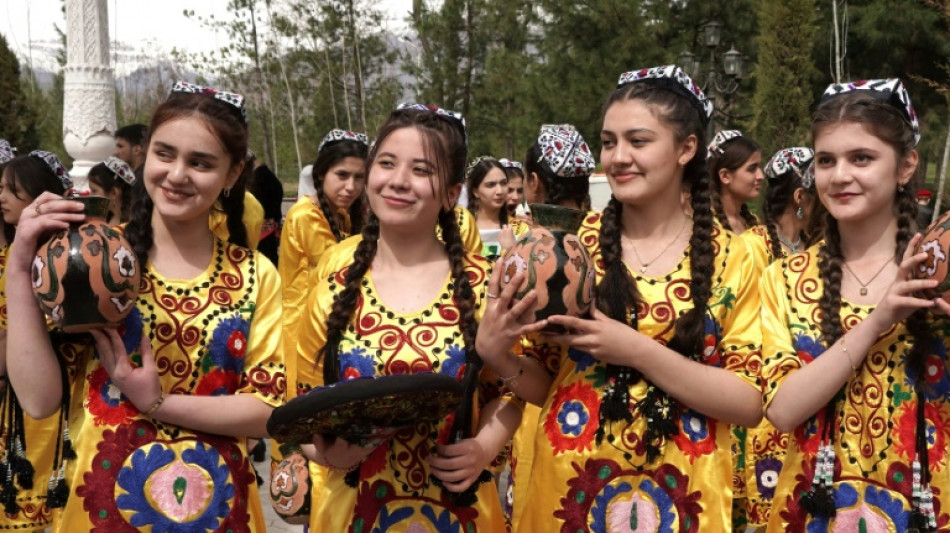
-
 Earth's satellites at risk if asteroid smashes into Moon: study
Earth's satellites at risk if asteroid smashes into Moon: study
-
Syria president vows those involved in church attack will face justice

-
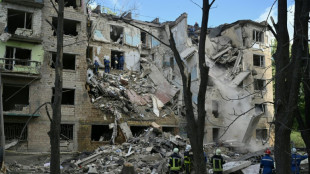 Russian barrage kills 10 in Kyiv, including 11-year-old girl
Russian barrage kills 10 in Kyiv, including 11-year-old girl
-
Military bases or vital waterway: Iran weighs response to US strikes

-
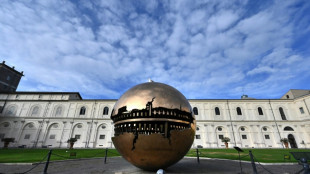 Italian sculptor Arnaldo Pomodoro dies aged nearly 99
Italian sculptor Arnaldo Pomodoro dies aged nearly 99
-
Rahul and Pant build India lead against England

-
 UK probes maternity services after scandals
UK probes maternity services after scandals
-
Asian countries most vulnerable to Strait of Hormuz blockade
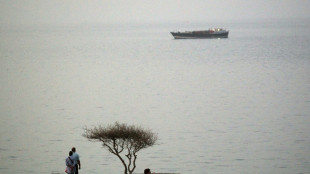
-
 Anger as Kanye West to perform in Slovakia after Hitler song
Anger as Kanye West to perform in Slovakia after Hitler song
-
Israel targets Iran Guards, Tehran prison in fresh wave of strikes
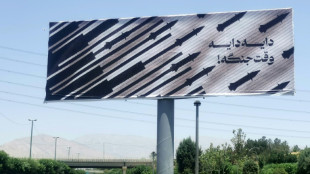
-
 Star-packed, Covid-shaped 'Death Stranding 2' drops this week
Star-packed, Covid-shaped 'Death Stranding 2' drops this week
-
IOC is in 'best of hands', says Bach as he hands over to Coventry
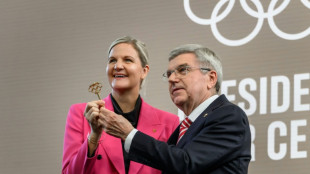
-
 Oil prices seesaw as investors await Iran response to US strikes
Oil prices seesaw as investors await Iran response to US strikes
-
Beijing issues weather warning for hottest days of year
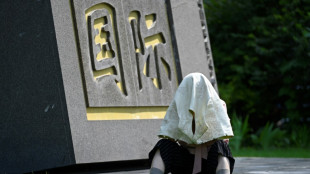
-
 Tehran hit by Israeli attacks, vows response to US strikes
Tehran hit by Israeli attacks, vows response to US strikes
-
New CEO of Jeep owner Stellantis starts with leadership shake-up

-
 Russian drone and missile barrage kills eight in Kyiv
Russian drone and missile barrage kills eight in Kyiv
-
Oil dips, dollar firms after US strikes in Iran

-
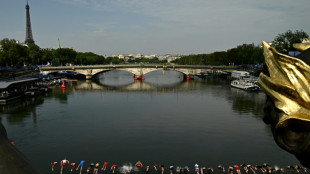 Paris Olympics and Paralympics cost taxpayer nearly 6 bn euros: state body
Paris Olympics and Paralympics cost taxpayer nearly 6 bn euros: state body
-
Eurozone business activity almost flat again in June

-
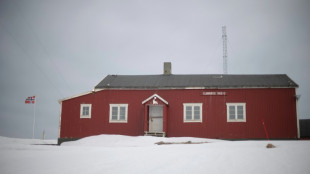 In Norway's Arctic, meteorologists have a first-row seat to climate change
In Norway's Arctic, meteorologists have a first-row seat to climate change
-
Iran vows retaliation for US strikes as Israel keeps up attacks

-
 Russian drone and missile barrage on Kyiv kills seven
Russian drone and missile barrage on Kyiv kills seven
-
Oil rises, dollar firms after US strikes in Iran

-
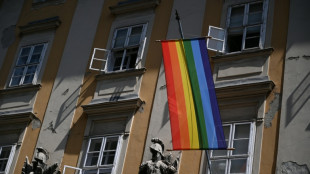 'Noble to attend': Budapest prepares for 'banned' Pride march
'Noble to attend': Budapest prepares for 'banned' Pride march
-
Art market banking on new generation of collectors
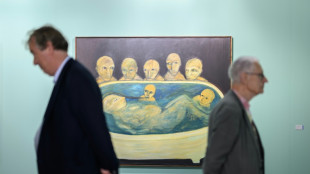
-
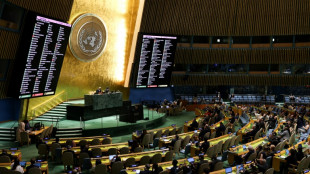 Turning 80, UN faces fresh storm of doubts
Turning 80, UN faces fresh storm of doubts
-
'A great start': NBA crown just the beginning for Shai

-
 Man City hit six to reach Club World Cup last 16, Real Madrid win with 10 men
Man City hit six to reach Club World Cup last 16, Real Madrid win with 10 men
-
Iran vows retaliation after US strikes on nuclear sites
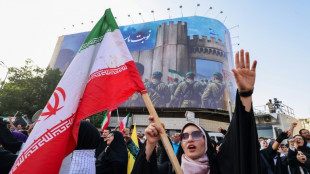
-
 'Massive' Russian attack on Kyiv kills at least five: Ukraine
'Massive' Russian attack on Kyiv kills at least five: Ukraine
-
Groundbreaking Vera Rubin Observatory reveals first images

-
 Thunder beat Pacers in game seven, cap stunning season with NBA crown
Thunder beat Pacers in game seven, cap stunning season with NBA crown
-
Pacers 'hearts dropped' after Haliburton injury: Carlisle

-
 Ukraine says 'massive' Russian attack on Kyiv
Ukraine says 'massive' Russian attack on Kyiv
-
Thunder's Gilgeous-Alexander named NBA Finals MVP

-
 Thunder beat injury-hit Pacers in game seven to win NBA title
Thunder beat injury-hit Pacers in game seven to win NBA title
-
Oil prices spike after US strikes on Iran

-
 Man City demolish Al Ain to reach Club World Cup last 16
Man City demolish Al Ain to reach Club World Cup last 16
-
Thunder beat Pacers to clinch first NBA Finals crown

-
 Bone collectors: searching for WWII remains in Okinawa
Bone collectors: searching for WWII remains in Okinawa
-
Madrid coach Alonso says Rudiger complained of racist insult in Club World Cup win

-
 Girls shouldn't shout?: Women break the mould at French metal festival
Girls shouldn't shout?: Women break the mould at French metal festival
-
Indian activists seek to save child brides

-
 Jonathan Anderson set for Dior debut at Paris Fashion Week
Jonathan Anderson set for Dior debut at Paris Fashion Week
-
Ukraine says 'massive' Russian drone attack on Kyiv

-
 Oasis: from clash to cash
Oasis: from clash to cash
-
Toxic threat from 'forever chemicals' sparks resistance in Georgia towns

-
 All Blacks name five debutants in squad for France Tests
All Blacks name five debutants in squad for France Tests
-
Pacers' Haliburton hurt early in game seven against Thunder


Tajik women speak out against government fashion advice
Women in Tajikistan are being advised by the government to dress more "Tajik-style" and not wear either revealing Western clothes or Islamic head coverings -- supposedly to reinforce national identity.
Some in the secular Muslim country are speaking out against the advice, including from President Emomali Rakhmon as well as in the form of a manual due to be issued by the government this year.
The advice to be published in July will be based on "scientific and historical sources", Khurshed Nizomi, a culture ministry official, told AFP.
The manual applies to women "of all ages" and will give tips on what to wear "at work, at home, at the theatre or during celebrations", he said.
But Firuza Naimova, a pharmacist, questioned the need for government advice to women on clothing.
"There are many economic and social problems -- a lack of electricity, the air quality, emigration" to Russia, she told AFP in Dushanbe, the poorest capital of the former Soviet republics of Central Asia.
"Why do they want to give lessons to women? They can choose their own clothes," Naimova said.
A previous manual from the government in 2018 advised women to avoid revealing European clothing, mini-skirts, and low necklines, but also refrain from wearing black and head-covering hijabs.
Instead, they should wear long and brightly coloured Tajik robes, it said
- 'Trample on our values' -
President Emomali Rakhmon, who has ruled Tajikistan since 1992, passed a law in 2024 banning the "import and sale of foreign clothes and their wearing in public places" and called on Tajiks to respect "the wearing of national clothing".
"In Tajikistan, women have always faced pressure on clothing choices," Farzona Saidzoda, co-author of the feminist initiative "Tell Me Sister", told AFP.
"Under the Soviet Union, the hijab was not worn because it was considered alien to our culture in Central Asia."
"But that is the same for more open and shorter clothing," she said.
State media have criticised "so-called artists" who wear mini-skirts, "imitators" of American style, and women wearing the hijab.
The fashion policy started after the victory of Rakhmon's ex-Communist forces against a coalition of democrats and Islamists in a civil war that killed tens of thousands of people in the 1990s.
The authorities have since tried to strengthen a divided nation and eradicate Islam as a political force -- cracking down on any opposition.
After decades of Soviet atheism, independence saw a return of religion in a society beset by poverty, with many Tajiks joining jihadist organisations in the Middle East and neighbouring Afghanistan.
"The situation is worrying. Those who wear foreign clothes like the hijab think of themselves as different. They are nothing and trample on our values, undermine our identity," Rakhmon said.
- De facto ban on beards -
The authorities have accelerated a crackdown since four gunmen suspected to have come from Tajikistan carried out an attack claimed by the Islamic State group near Moscow last year, killing 145 people.
Hijab wearers resent the association with radical Islam.
"I have worn the hijab since I was nine years old. I have never had a problem until this year when I was asked to show my hair in a ministry and then at the market," said Dzhamila, a doctor.
"Last spring, some of my friends were detained and received fines" for wearing hijabs, she told AFP.
Authorities are counting on fashion designers to promote traditional garb.
"We are creating modern dresses by using our rich cultural tradition for everyday use," Khurshed Sattorov said in his workshop.
"For women who want to cover their hair, we have national textiles," he said.
There is no similar advice for men, although beards are effectively banned and anyone with one risks being seen as a suspected Islamic extremist.
The culture ministry said it was thinking of issuing a separate manual with a male dress code.
L.AbuAli--SF-PST
